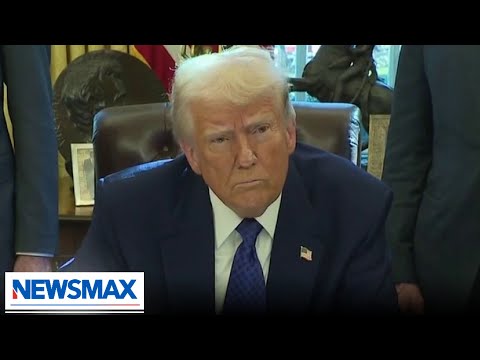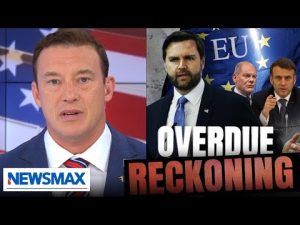A significant discussion recently took place regarding energy policy and international relations, particularly as it relates to the ongoing issues in Europe and the Middle East. One area of focus was the potential for the Constitution pipeline in New York, which has been under development for two decades. The pipeline promises to deliver substantial benefits, such as reducing energy prices dramatically—reportedly cutting costs in half for consumers in New York and even impacting New England’s energy prices. With most permits already secured, the pipeline could potentially be up and running in as little as nine months, bringing economic opportunities and jobs to the region.
As the dialogue continued, attention shifted to trade balance and tariffs, particularly concerning the steel industry. The previous administration successfully implemented tariffs on imported steel, primarily from China. This move aimed to protect American jobs, ensuring that steel mills could continue to operate. It appears that these tariffs have had a positive effect on the steel industry, revitalizing it and boosting its profitability. There was also a discussion about a Japanese company interested in investing in the U.S. steel sector, emphasizing the administration’s desire to keep American industries under domestic control.
Moving beyond domestic matters, the conversation ventured into international waters, notably touching on Vice President Pence’s speech at a recent conference in Munich. His remarks about freedom of speech and immigration were said to have “ruffled feathers” among European leaders. However, it was noted that these concerns are legitimate, as many European countries are grappling with rising crime rates linked to immigration. The idea that freedom of speech is becoming increasingly threatened in Europe was a central theme, suggesting a growing divide in perspectives between the U.S. administration and European leaders.
The conflict involving Ukraine was another pressing topic. The commentary suggested that if the former president had remained in office, the war might not have occurred. There are arguments that Ukraine’s aspirations to join NATO played a role in escalating tensions with Russia. The consequences of this conflict have had global ramifications, including significant impacts on inflation and other geopolitical scenarios. Thus, the consideration of foreign policy at a high level becomes crucial in maintaining stability.
Lastly, the complexities surrounding ongoing hostage situations in the Middle East were addressed. Notably, the administration expressed a stern attitude towards how conflicts are managed and communicated with the public. There’s growing concern about the treatment of hostages, with reports indicating that they may look worse for wear after their ordeal. Situations like these reflect the delicate balance of power between nations and the humanitarian responsibilities that come into play during such conflicts. In summary, the discourse covered a broad spectrum of critical issues, touching the lives of many everyday Americans while navigating the intricacies of international diplomacy.



